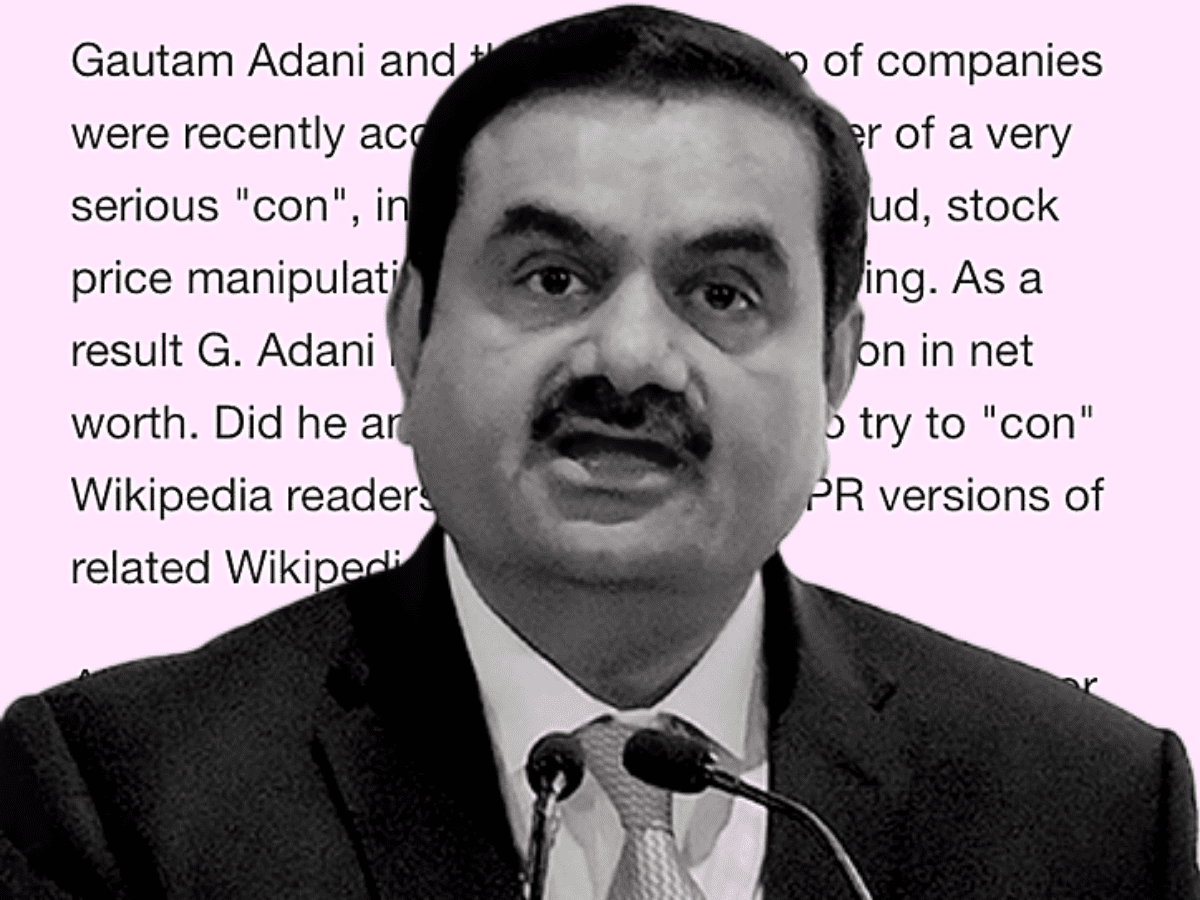
In a new development in the Adani-Hindenburg report, Wikipedia’s online newspaper The Signpost published a news report stating that Adani Group employed several undeclared paid editors to ‘clean its Wikipedia page’.
The Signpost focuses on English Wikipedia, its sister projects, the Wikimedia Foundation, and the Wikimedia movement at large.
It categorically says “no entirely on-Wiki investigation of a user’s edits can completely identify an editor’s name or employer. Even if the editor identifies themself as an employee of a company, they may be simply trying to embarrass the company…We can, however, examine the nearly complete record of edits made to Wikipedia and identify editors that are likely to be fraudulent, or that appear to be working together with other accounts.”
Hindenburg Research’s founder Nate Anderson tweeted about the report on his page, “Of all things—now the Signpost, Wikipedia’s independent newspaper, is out w/ an article showing how Adani systematically manipulated its Wikipedia entries using sock puppet accounts, undisclosed paid editors & removing the evidence of conflicts of interest.”
The article was written by a Wikipedia user called Smallbones. Smallbones has now been staged under the ‘disinformation report’ category.
The article titled ‘The “largest con in corporate history”?’ states that Hindenburg accused the conglomerate of alleged financial fraud, stock price manipulation and money laundering.
Signpost recently banned over 40 sockpuppets (a false online identity, typically created by a person or group in order to promote their own opinions or views) or undeclared paid editors who were employed to create a clean image of the industrialist, his family members including wife Priti Adani, son Karan Adani and nephew Pranav Adani as well Adani Group. Wikipedia reported that all 40 sockpuppet accounts have been banned.
Signpost also reported that there was one person who activated from the company’s IP address and rewrote the article for ‘Adani Group’ entirely.
“Many of them edited several of the articles and added non-neutral material or puffery. A declared paid editor, using a company IP address, completely rewrote the Adani Group article. Others removed warnings about conflict-of-interest editing. Some created articles by unusual methods that avoided Wikipedia’s quality control systems,” the report says.
Another account called ‘Hatchens’ misused its power of position and edited seven of the nine articles edited by the Signpost team.
The report also mentions about two single-purpose accounts or SPA – ‘Adanigrouponline’ and ‘Adani Group’- which were later blocked after they were found of editing and cleaning Adani’s image. The two SPAs were dedicated to rewriting or editing Adani-related articles as well as adding a detailed list of business units, and a list of awards, the report noted.



